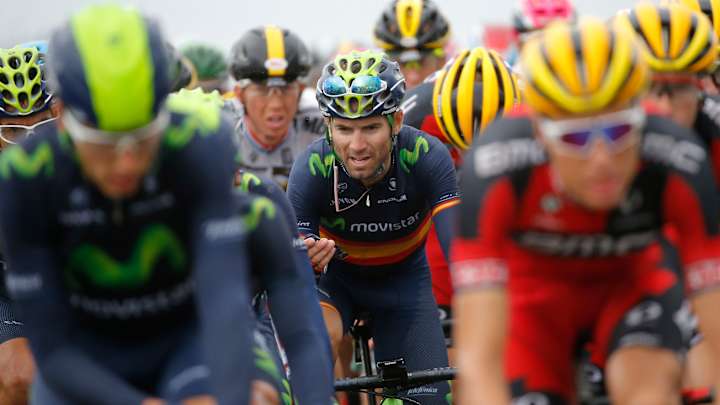Operation Puerto continues to shed bad light on Spain

MADRID (AP) Ten years later, one of the worst doping scandals in Spain continues to haunt the country's athletes.
Operation Puerto, the 2006 investigation which unveiled a doping network involving some of the world's top cyclists, refuses to go away as a local court drags on deciding whether hundreds of confiscated blood bags should be destroyed.
The announcement about the fate of the blood bags, which could stir up another scandal if identities of new athletes are revealed, was expected last year, but it has been constantly delayed over the last few months, upsetting some Spanish athletes and local sports officials who say the lack of closure on the case has further damaged the country's image in the fight against doping.
''Whenever there has been people talking samples being destroyed, I think for Spanish sport that's terrible news,'' tennis player Rafael Nadal said. ''Everything should be transparent, and the people that do wrong things should pay for it and people that do the things right should be better off. They should have a clean image.''
Nadal's comments came not long after he had to deal with unproven doping accusations made against him by a former French minister. To defend his integrity, he filed a defamation lawsuit against the person and asked the International Tennis Federation to make all of his anti-doping test results publicly available.
''There has to be complete transparency in sport,'' said Nadal, who will be Spain's flag-bearer at the Olympics in Rio de Janeiro. ''When things are not done the right way, they should be public. If not, we're going to be speculating about unnecessary things, which is going to damage the image of the sport and sportsmen.''
The president of the Spanish Olympic committee, Alejandro Blanco, said that the longer it takes for a decision on the blood bags to be announced, the worse it is for Spanish sports and local athletes.
''Operation Puerto caused horror to our sport and to the image of the country,'' Blanco said. ''We've been dealing with this for 10 years, and it feels like it could be other 20. That can't happen. It's upsetting.''
It doesn't help that the World Anti-Doping Agency two months ago declared Spain to be ''non-compliant'' with its codes because it failed to make required law changes on doping. The country was not able to form a government following elections last year, so the parliament has not been able to update the country's anti-doping legislation to match the revised WADA regulations.
''When we had our bid (for the 2020 Olympics), out of 20 questions we would get from reporters, 12 were about the economic crisis and six or seven were about doping, there was almost no chance to actually talk about Spanish sports,'' Blanco said.
Spain's top sports official said the government has done its part by asking for the blood bags to be released, but noted that the court's decision must be respected. Miguel Cardenal, president of the country's Higher Sports Council, said Spain has made significant progress in the fight against doping despite the setbacks with Operation Puerto and the non-compliance ruling by WADA.
''I think that for the last few years the public perception is that Spain does not tolerate doping,'' Cardenal said. ''Operation Puerto happened several years ago, the same result would have probably happened in other places because at the time countries did not specify doping as a crime as they do now.''
Operation Puerto came to light when police seized coded blood bags from the Madrid clinic of sports doctor Eufemiano Fuentes, who worked with several top cyclists. In a trial in 2013, he was convicted of endangering public health and received a suspended one-year prison sentence for improperly performing blood transfusions on athletes.
Fuentes also had his sports medicine license withdrawn for four years. A former cycling team director was sentenced to four months in prison, but also didn't have to serve time. Both appealed the ruling.
More than 50 cyclists were originally linked to the case, and among the few eventually suspended were former Tour de France winner Jan Ullrich, Spanish Vuelta champion Alejandro Valverde and Ivan Basso, who later confirmed that his blood was among the frozen samples found in Operation Puerto.
Fuentes said during the trial that he also worked with athletes from other sports, but judge Julia Patricia Santamaria said he didn't have to mention anybody who was not implicated in the cycling case.
The judge also ordered the destruction of the blood bags and other evidence, citing privacy laws, a decision that outraged the sports community at the time. Spain's anti-doping agency, the International Cycling Union and WADA were among the entities that appealed to have the blood bags released to be re-examined.
The Madrid court handling the case had said a ruling was reached late last year and a decision would be made public by the end of March. But since then there has been no new timetable on when the much-anticipated decision will be announced. The court said that it takes time because the case has a complex appeals process with several parties involved.
The delay has only caused further speculation and increased criticism about the country's handling of doping cases, even 10 years later.
---
Tales Azzoni on Twitter: http://twitter.com/tazzoni
